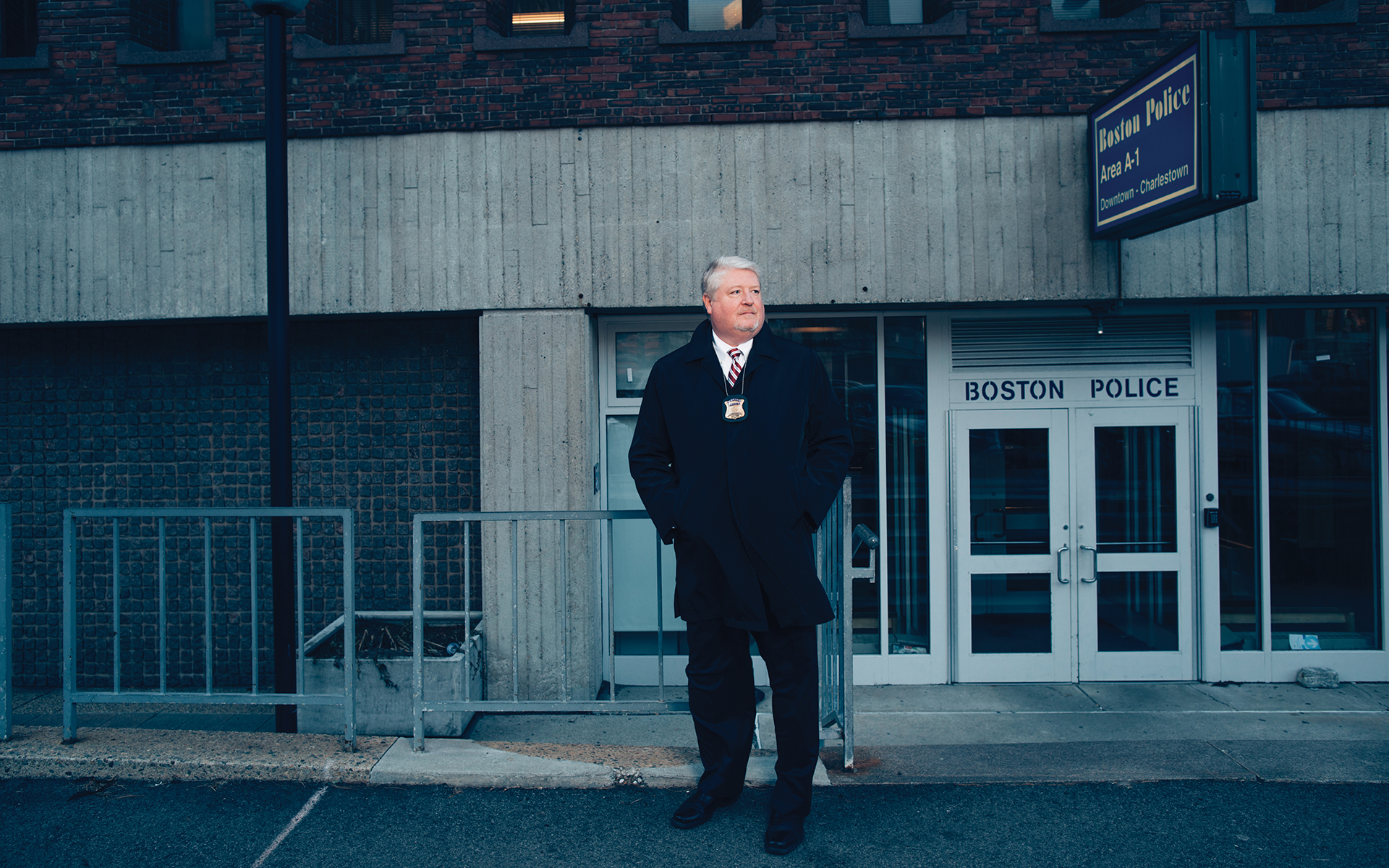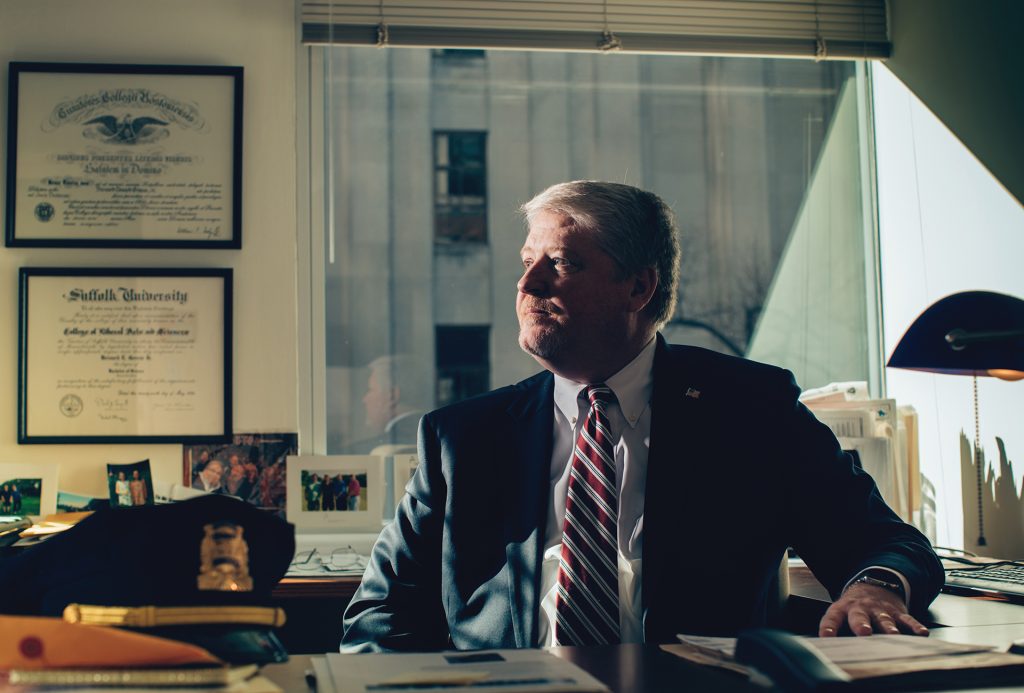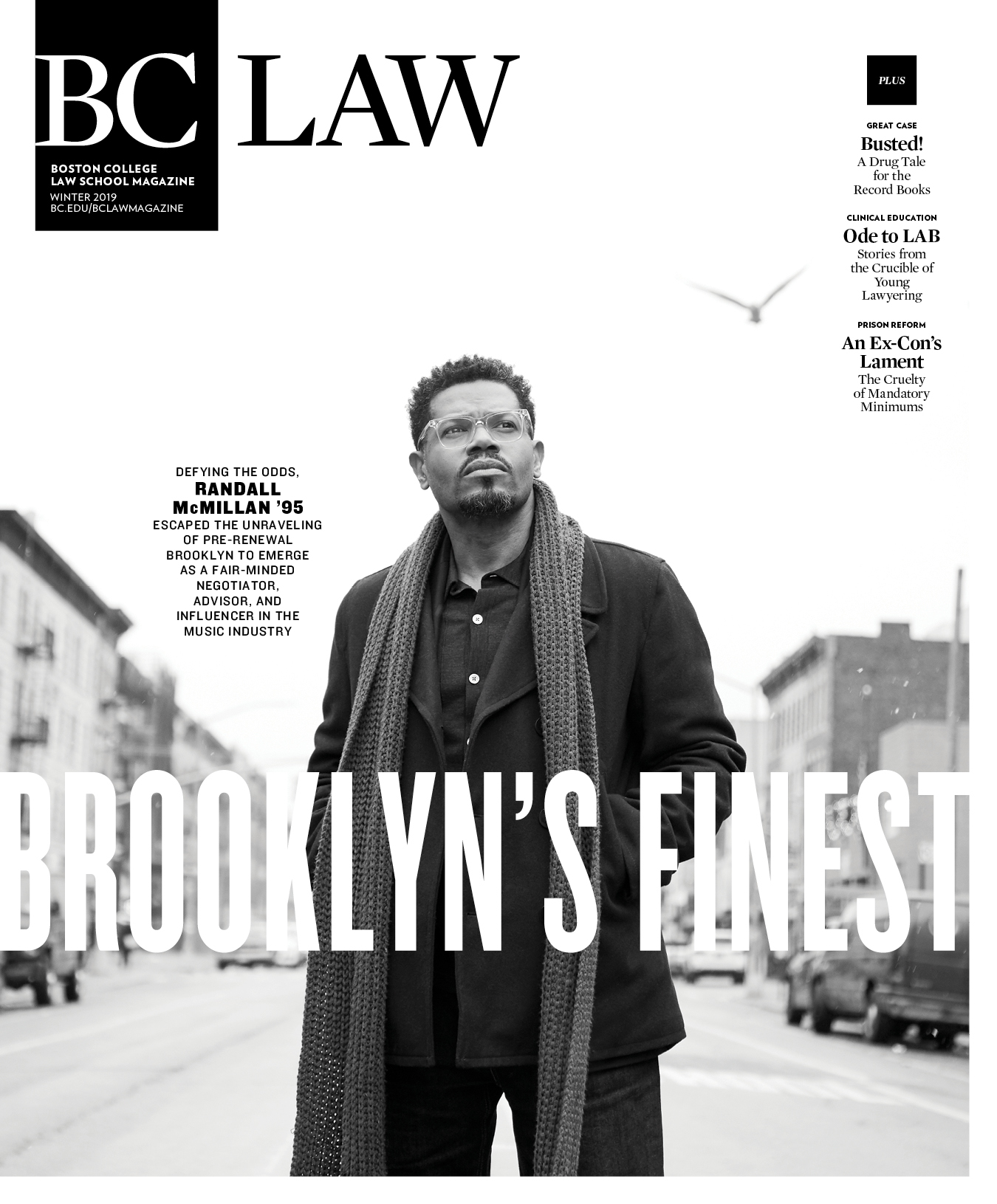Pocket Résumé
Buddy Greene ’97: Detective Lieutenant, Boston Police Department. Arresting Developments: When he joined the police force in 1989, crime rates were high and, “unfortunately, it wasn’t uncommon to make several arrests in a night.” Most Memorable Collar: The funeral director who stole $150,000 from clients while keeping their loved ones’ bodies in a storage facility for years. “We started with the suspicion that he was not filling out death certificates correctly. We dug deeper and ultimately broke the case wide open.”
“I’m an Irish Catholic guy who grew up in the projects,” says Buddy Greene ’97, a lieutenant detective with the Boston Police Department who for the last eleven years has headed a special investigation unit located at the Suffolk County District Attorney’s Office. Having grown up in mostly Irish and Italian East Boston in the 1980s, he now considers himself lucky not to have fallen into “the trap” of crime and poverty that afflicts so many.
How did Greene avoid that life? In addition to having a supportive family, he took the police exam and nailed it. He had been working a low-wage job when his roommate begged him to take the test with him so he wouldn’t have to go in alone. “I scored a 100 and was soon after offered a job that essentially tripled my salary,” Greene says. He followed that path until he met his future wife, Tracy Campion, who made it clear she wanted the father of her future children to be a college graduate.
So, Greene went to Suffolk University and worked full time. “I would go to my midnight shift in Roxbury and then to early morning classes,” he says. “Then, I’d go home and sleep till the shift started all over again.”
When he graduated at the top of his class with a bachelor’s degree in criminology and law, he says, “people were like, ‘you can’t stop here.’” Reasoning that it seemed like a good way to bolster his résumé within the police department, he enrolled at BC Law, after which he clerked with the Massachusetts Superior Court, then did civil work for a law firm.
But nine months later, the police world beckoned again, this time offering to promote him to sergeant. “Police work is way more fun than lawyering, at least for me,” he says. “It was a difficult decision in some ways, as potential future earnings were to be considered. However, my wife’s career was blossoming. I consider myself blessed for both her and her decision to allow me to choose.”

In 2007, Greene was tapped to run the special investigation unit, where he supervises four officers. “We’re on loan from the police department to the DA’s office. We handle supplemental investigations and we double as a security force for the district attorney,” he says. Often times cases are reported directly to the DA’s office by outside agencies such as the Division of Professional Licensure or the Executive Office of Elder Affairs. Rather than refer them to the police district where the alleged crime occurred, they handle them directly.
His unit also handles threats or intimidation cases made against assistant district attorneys or other staff, and screens dozens of extradition cases annually, many of them referrals by federal agencies of out-of-state defendants wanted in Suffolk County.
Though not in the DA’s office as an attorney, Greene finds his JD invaluable in terms of understanding what lawyers do and how they think. “I’m here as a police lieutenant detective. But the advantage of a law degree and thirty years of experience with the police puts me in a unique position. I can engage with prosecutors and defense attorneys,” he explains.
“I always tell people, if you have the means, law school is incredibly challenging and satisfying,” Greene adds. “I found the bar exam to be the most challenging event in my life—and this is from a guy who ran around in the middle of the night with a gun.”





